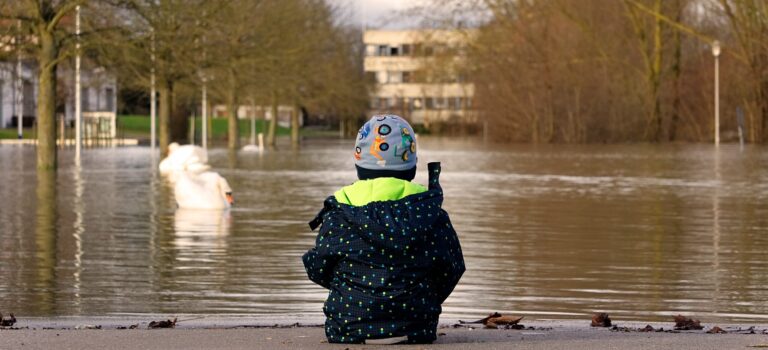Peer-Reviewed Article · Dec 13, 2023
What predicts U.S. public support for climate aid to developing countries?
By Patrick Owusu Ansah, Eryn Campbell, John Kotcher, Seth Rosenthal, Anthony Leiserowitz and Edward Maibach
Filed under: Audiences, Beliefs & Attitudes and Policy & Politics

We are pleased to announce the publication of a new article, “Predictors of U.S. public support for climate aid to developing countries,” in the journal Environmental Research Communications.
A major focus of the 28th United Nations Climate Change Conference of Parties (COP 28) was to negotiate new pledges for financial aid and technical assistance to developing countries to help them reduce their greenhouse gas emissions and protect themselves from the impacts of climate change. Although new funding from the United States and other countries was announced in the first days of the conference, many experts and advocates argue that the new commitments fall far short of what is needed for developing countries to cope with the effects of climate change. With many members of Congress reluctant or opposed to international assistance, it is important to understand the factors associated with U.S. public support for climate aid to developing countries.
Using data from a nationally representative survey of American registered voters (conducted in September 2021), we found that more education, certainty that global warming is happening, worry, perceived risk to developing countries from global warming, and belief that the U.S. should do more to address global warming (i.e., injunctive beliefs) were positively related to support for climate aid. Higher income and exposure to conservative news sources (Fox News) were negatively associated with support for climate aid.
Democrats tended to be more supportive than Republicans of climate aid. Among Democrats, more education, perceived risk to the U.S., worry, and injunctive beliefs that the U.S. should do more to address global warming were positively related to support for climate aid, whereas higher income was negatively related to support for climate aid. Among Republicans, perceived risk for developing countries and injunctive beliefs that the U.S. should do more were positively related to support for climate aid.
The study finds that a range of demographics and beliefs and attitudes about global warming predict support for climate aid. Understanding these factors has important implications for the degree of public support for future financial commitments.
The full article is open-access and is available here from Environmental Research Communications.